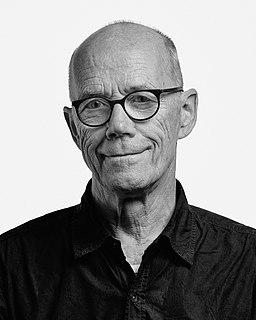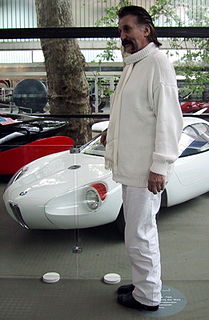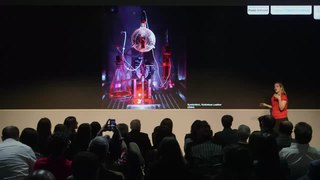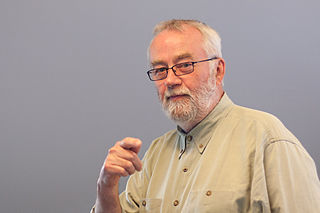A Quote by William McDonough
I think as designers we realize design is a signal of intention, but it also has to occur within a world and we have to understand that world in order to imbue our designs with inherent intelligence.
Related Quotes
When it comes to the mental world, when we design things like health care and retirement and stock markets, we somehow forget the idea that we are limited. I think that if we understood our cognitive limitations in the same way that we understand our physical limitations … we could design a better world.
We call ourselves Homo sapiens--man the wise--because our intelligence is so important to us. For thousands of years, we have tried to understand how we think: that is, how a mere handful of matter can perceive, understand, predict, and manipulate a world far larger and more complicated than itself. The field of artificial intelligence, or AI, goes further still: it attempts not just to understand but also to build intelligent entities.
These days, information is a commodity being sold. And designers-including the newly defined subset of information designers and information architects-have a responsible role to play. We are interpreters, not merely translators, between sender and receiver. What we say and how we say it makes a difference. If we want to speak to people, we need to know their language. In order to design for understanding, we need to understand design.
The world is super-stupid. You have by far the best designers in America! And you do the most stupid cars in the world! They put billions into their stupid designs for General Motors, Chrysler, Buick, or who knows what. The designers in America must be frustrated. I am not frustrated, because I am not a designer - I am a philosopher, and all philosophers have said for ages that the world around them is stupid.
Jay Harman is the quintessential biomimic, a principled inventor who sees solutions everywhere he looks in the natural world. And he looks deeply, with the soul of a student. He moves with grace from a world of waving sea kelp to the world of sustainable design, bringing nature's wisdom into the board rooms of global companies, to the design tables of the engineers and designers who make our world. This is more than a business book, more than a memoir, more than a new way to solve global challenges. It's a book about a new way to think.
The most common misperception is the word 'design'. People think of primarily pretty pictures or forms. They don't understand the depth to which design goes-not only in products, but in every aspect of our life. Whether it is the design of a program, a product or some form of communication, we are living in a world that's totally designed. Somebody made a decision about everything. And it was a design decision.
In an ideal world, social responsibility would be a prerequisite for design, and designers would vow to produce beautiful, useful, positive, responsible, functional, and economical things and concepts that are meaningful additions to—or sometimes subtractions from—the world we live in. Indeed, design deserves such thoughtful consideration.
I don’t think that anyone has really told (people) what design is. It doesn’t occur to most people that everything is designed--that every building and everything they touch in the world is designed. Even foods are designed now. So in the process of helping people understand this, making them more aware of the fact that the world around us is something that somebody has control of, perhaps they can feel some sense of control, too. I think that’s a nice ambition.





































